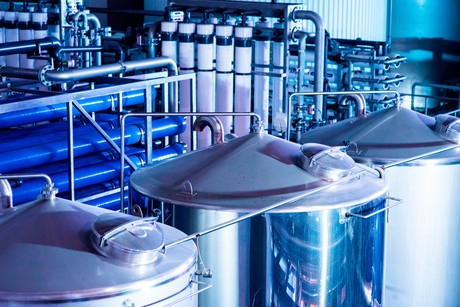The importance of analyser maintenance

Modern processing plants are becoming more automated, and for good reason. A well-automated plant can not only improve efficiency, consistency and quality, but can also reduce energy consumption, waste and emissions. Crucial elements in this automation chain are the field instruments and process analysers — devices which are only useful if you can rely on the readings they provide, yet frequently suffer from lack of maintenance.
Unlike many instruments, process analysers require frequent maintenance and recalibration as the measuring element is in direct contact with the process. As a consequence, the process will have an influence over the performance of the analyser — and the nastier the process, the more frequent the maintenance requirement.
Analysers are used for many applications: product quality, chemical dosing, regulatory monitoring etc, so perhaps it’s not too difficult to imagine the implications of not maintaining the analyser.
Overdosing of chemicals lead to high operating cost and damage to plant and equipment. Underdosing chemicals causes reduced yield, lost product and consequently reduced profitability. The long-term effects of a decline in product quality and consistency can result in a bad reputation and lost customers. Similarly, environmental excursions lead to a bad reputation and can be an expensive mistake!
Let us consider the humble pH analyser. It is probably the most common of process analysers and used in a wide variety of applications. However, it is also one of the most maintenance-intensive analysers because the process so easily influences the measuring elements, causing drift and non-responsiveness.
We’ve established that maintenance must be performed: our next challenge is to find someone willing to perform that task! Experience tells us that few people relish this task on an industrial plant. Also, few people understand why it is required and can become quickly frustrated. The risk here is that they leave the analyser unmaintained and adopt a stance of ‘it never worked anyway’. Yet a clearer understanding of what and how the process can be influencing the measurement can often help ensure the maintenance is done effectively. This must be addressed through education.
There are ways to help ensure the job is done, such as careful consideration of the installation location. Can the sensor be accessed easily for example? Does the process have to be shut down to access the sensor? Is there high temperature or pressure to be wary of? These are a few things that might otherwise promote procrastination, or reasons to not maintain.
When a decision is made to use a process analyser it’s accepted that quality and relevance of measurement remain the primary areas of interest. After all, there is usually a good reason the measurement is required. However, neither of these can be achieved without maintenance.
Maintenance and calibration will provide confidence and trust in the measurement, enabling operators and engineers to make appropriate decisions about process changes and contribute to the overall health of your plant and operation.
Video-based water detection reduces contamination in gas pipeline
How a US midstream company improved gas quality and reduced operating costs.
Aquamonix integrates flow monitoring for major gold producer
Instrumentation company Aquamonix has installed a flow monitoring solution for a major...
Magnetic flow meters: Verification and calibration within the process
Magnetic flow meters are often the best solution to measure flows of slurries, sludges and all...











